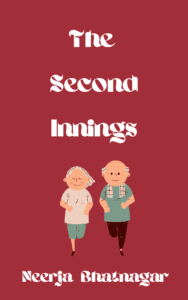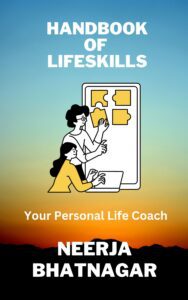
In a world increasingly enamoured with all things old and antique, it’s paradoxical that we often find ourselves neglecting the true treasures of wisdom that reside in our elderly population. As society glorifies vintage fashion, retro aesthetics, and historical artefacts, it’s time we shift our focus to a more meaningful appreciation of our elders. Through this post, I aim to shed light on the contrasting attitudes towards old and antique objects versus the treatment of older individuals and emphasize the importance of valuing and learning from our seniors.
The Allure of Antiquity
The resurgence of interest in old and antique items can be attributed to a variety of factors, including nostalgia, uniqueness, and a desire to connect with the past. Vintage clothing, classic cars, and antique furniture hold a certain charm that modern equivalents often lack. Their craftsmanship, stories, and cultural significance attract admirers who appreciate the historical value these items bring to the present.
Yet, while society applauds the preservation and celebration of these tangible remnants of the past, a stark contrast exists when it comes to valuing the elderly. Instead of cherishing the wisdom, experiences, and stories etched into the lives of our seniors, we often sideline them, leaving them isolated and disconnected from the vibrant tapestry of contemporary life.
Instagram | Facebook | Youtube | Podcast | Have you checked out my socials :)?
The Untapped Reservoir of Wisdom
Our elders are living repositories of history, culture, and knowledge. They have lived through times of hardship and prosperity, witnessed societal changes, and accumulated insights that cannot be found in any book or museum exhibit. Just as antique objects carry the weight of their own stories, our seniors possess an abundance of stories that can enrich our understanding of the world and inspire us to make wiser choices.
It’s crucial to recognize that the wisdom accumulated over a lifetime is an asset that can guide younger generations through challenges and decisions. By engaging in meaningful conversations and actively seeking the guidance of our elders, we stand to gain immeasurable insights that can shape our personal growth and collective progress.
Combatting Ageism: A Call to Action
Ageism, a form of discrimination based on age, is a prevalent issue that can be observed in various aspects of society such as employment, healthcare, social interactions, and media. It is a phenomenon that reinforces negative stereotypes about older individuals, which can lead to their disempowerment and marginalization. To combat this, it is necessary to challenge these stereotypes and promote the empowerment of older individuals, especially in a culture that tends to value youth over experience and wisdom.
Instagram | Facebook | Youtube | Podcast |
Creating Intergenerational Connections
Encouraging and nurturing genuine connections between individuals from different generations holds the potential to cultivate a profound sense of understanding, compassion, and mutual respect. This, in turn, can enrich the lives of both seniors and youths alike, fostering a more interconnected and fulfilling community for all. Through the process of bridging the generational gap, individuals have the opportunity to learn from one another’s diverse experiences, unique perspectives, and valuable insights. Ultimately, this can lead to a more profound and comprehensive understanding of the human experience, providing a foundation for building stronger, more resilient communities that embody the best of what humanity has to offer.
Learning Through Storytelling
The art of storytelling possesses immense power in transmitting knowledge and imparting values. It is highly recommended to motivate the elderly to share their life experiences with the younger generations. This could lead to a deeper sense of connection and present valuable insights into historical events and personal growth, resulting in a better understanding of life’s complexities.
Incorporating Elders into Society
By encouraging senior citizens to take part in community events, mentoring programs, and social gatherings, we can help prevent social isolation and promote a more lively and inclusive society. Providing opportunities for seniors to engage with others can have a positive impact on their mental and emotional well-being, as well as foster a sense of belonging and purpose. Additionally, seniors can share their knowledge and life experiences with younger generations, creating a mutually beneficial relationship. It’s important to prioritize social connection and inclusivity for all members of our community, and seniors are no exception.
Promoting Lifelong Learning
Motivating seniors to persist in acquiring knowledge and exploring novel hobbies can sustain their cognitive activity and instil a feeling of significance. This objective can be accomplished through attending seminars, enrolling in courses, and obtaining educational materials.
Story Time ….. Story Time ….. Story Time ….. Story Time ….. Story Time
Let me share a very interesting story with you all.
Once upon a time, there was a boy named Kushal who was in love with Vasudha. Both of them told their respective families as they wanted to get married. Kushal’s family members were very open-minded and they agreed to this alliance. While vasudha’s father was reluctant. After some persuasion and family discussion, he agreed to the relationship but with a condition. Vasudha’s father said that he wanted a baraat of only young people. No older people should come in baraat. Kushal and his family accepted the condition and both the families started preparing for the marriage.
Everyone was very happy for Kushal and Vasudha. As the wedding procession was about to leave, Kushal’s maternal grandfather (Nana) insisted that he would like to join the wedding procession. Everyone tried to argue with him and also told nana ji about the condition. Nana ji remained stubborn. He said – “Put me in the trunk of the car and take me, but I will go”. There was no choice with Kushal and he took Nana under disguise.
Everyone was dancing and singing. There was a river in Vasudha’s town. As the procession was about to cross the river, they saw Vasudha’s maternal uncle standing there. The procession stopped and Vasudha’s uncle told Kushal that we have one more condition that need to be fulfilled before the marriage rituals can be performed. And the condition is – “You people have to fill this river with milk.”
This was a shocker to Kushal and his friends. They all became sad and accepted that this marriage will not be performed as this condition of replacing river water with milk is impossible. When Nana heard of the condition, he told Kushal to send a message to the girl’s family that they have enough milk, just remove the water from the river and we will fill it with milk.
When Vasudha’s father got this message, he came to know that there is definitely some old person in the baraat. He was happy to know that Kushal’s family valued the elders in their family. The marriage was solemnised with much fanfare.
Moral of the story – ‘No matter how big you become, you do not have the experience of life that old people have. Respect them.
In a world that increasingly values the old and antique, we must extend this appreciation to encompass the invaluable wisdom and experiences of our elderly population. Just as we admire and preserve historical artefacts, let us celebrate the living repositories of history and knowledge that our seniors represent. By combating ageism, fostering intergenerational connections, and actively engaging with our elders, we can create a more inclusive and enriched society that truly values its ageing members. It’s time to recognize that the greatest treasures of our past are not locked away in museums or antique shops – they are walking amongst us, ready to share their stories and insights, enriching our lives and shaping our collective future.
![]()



